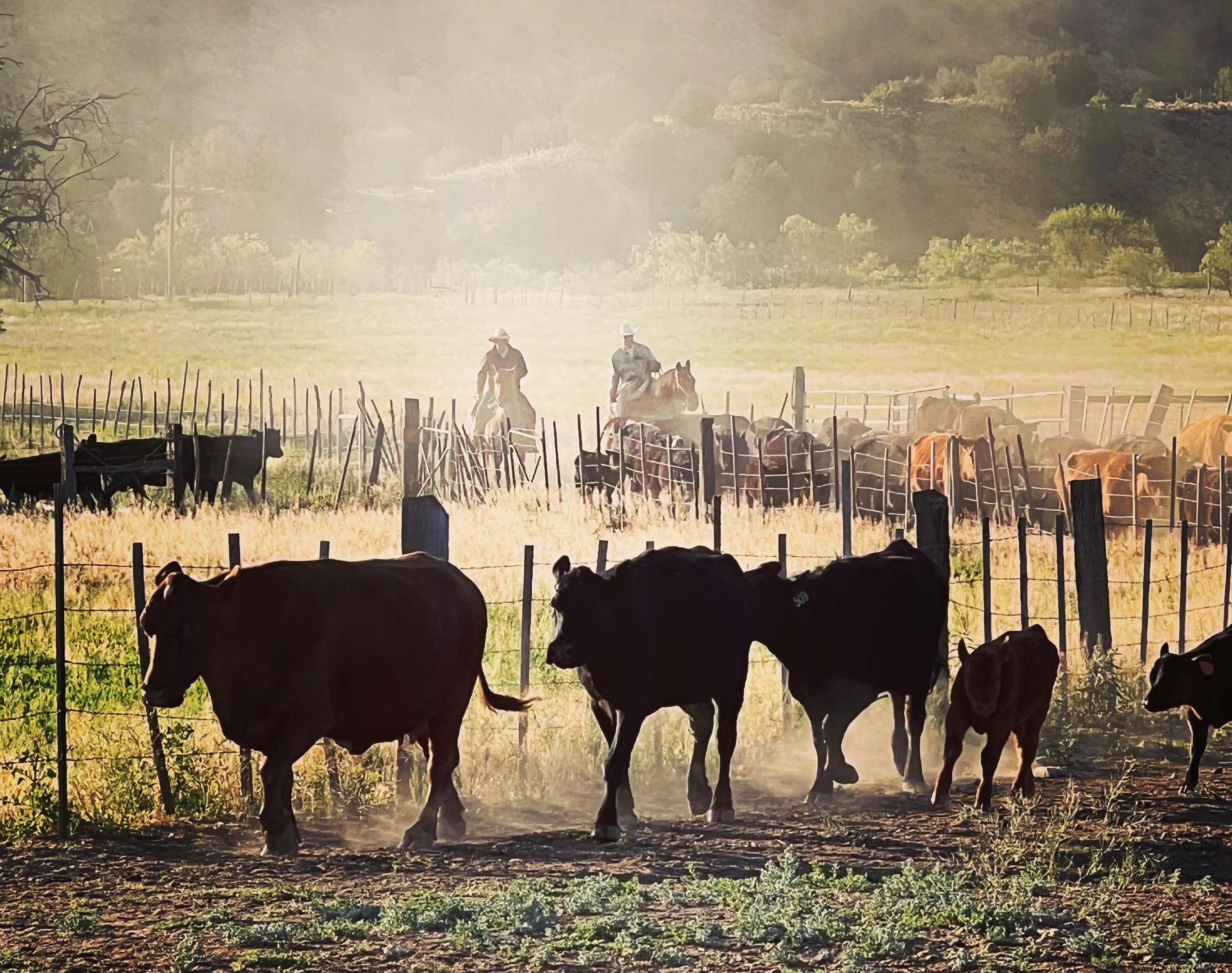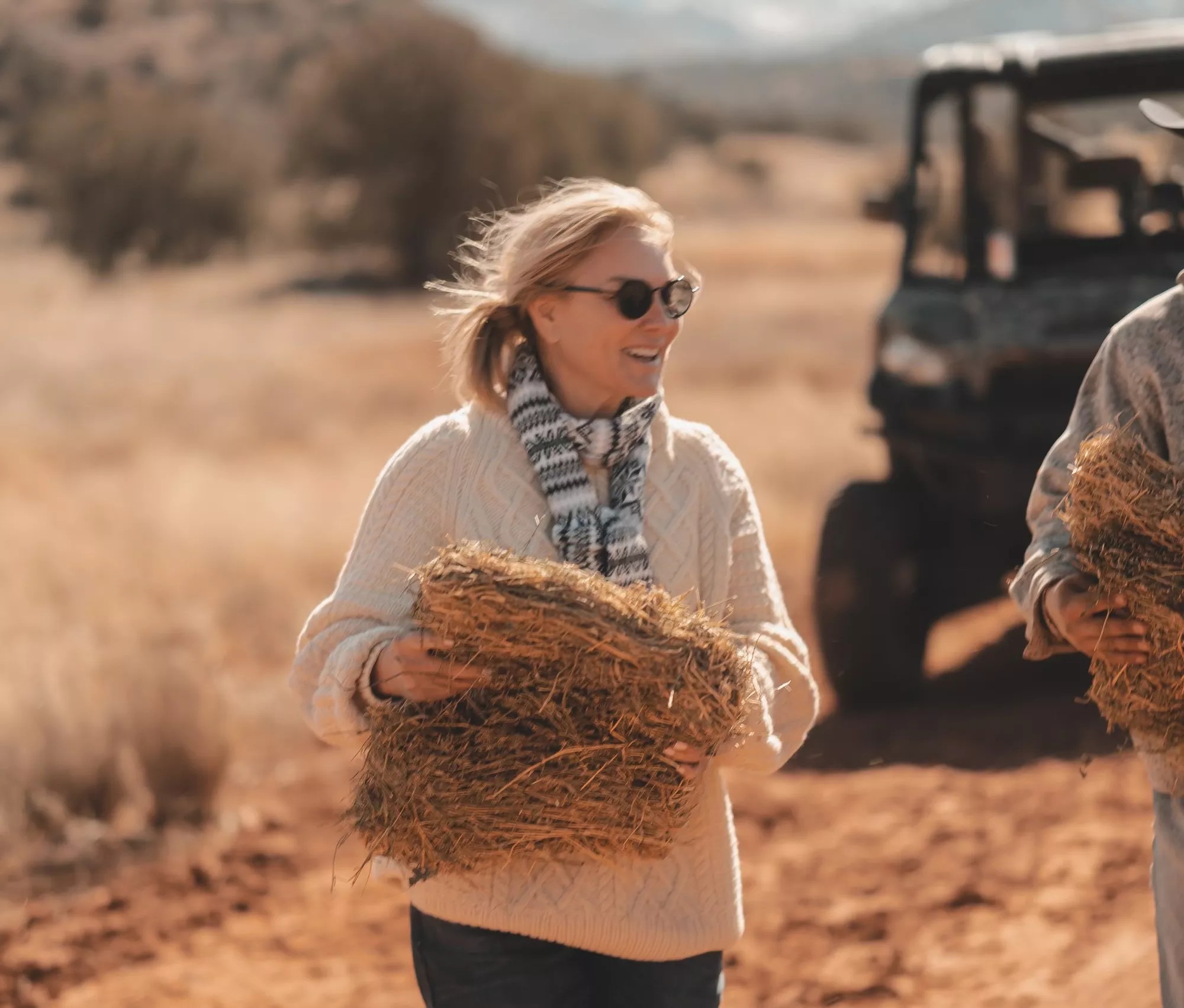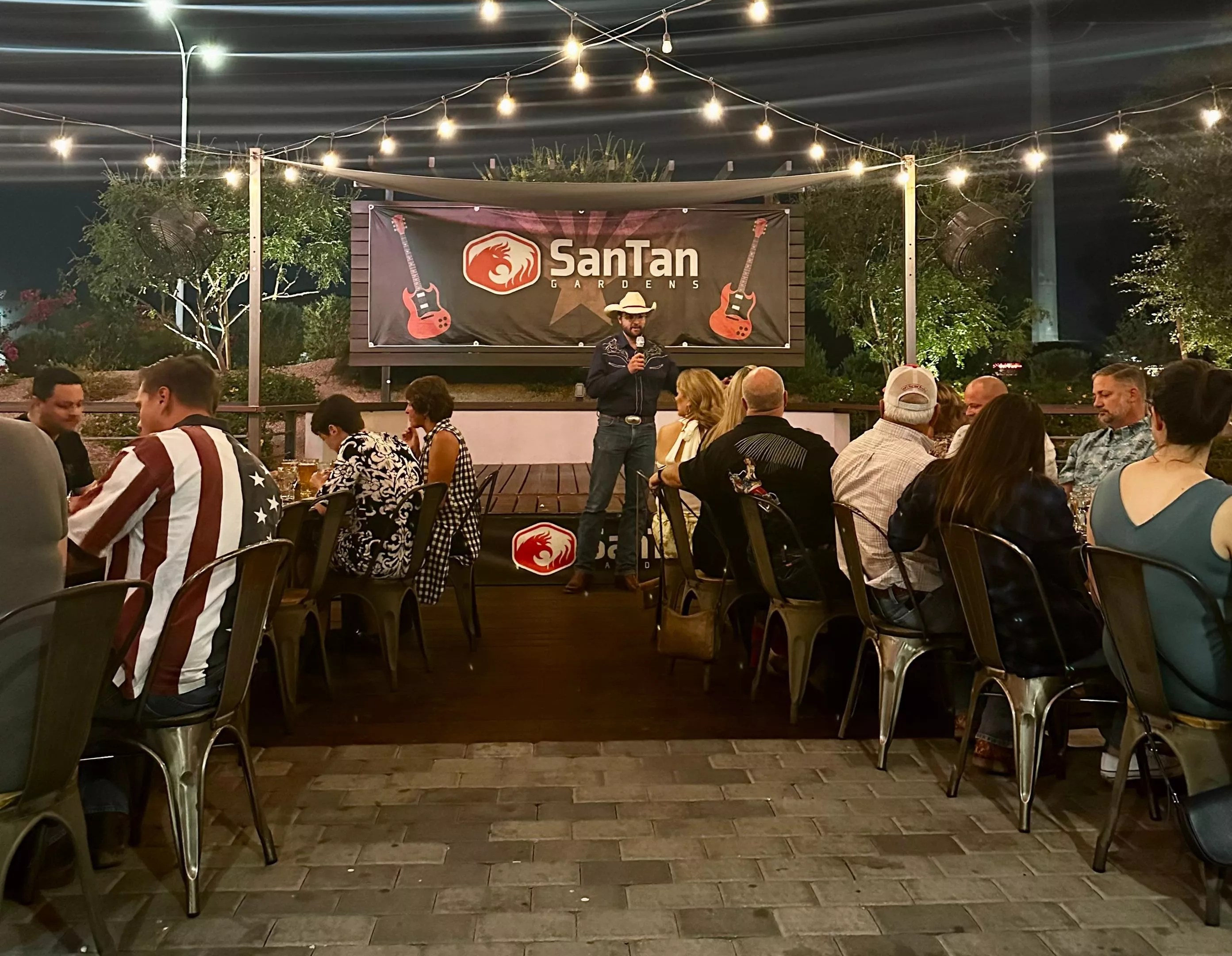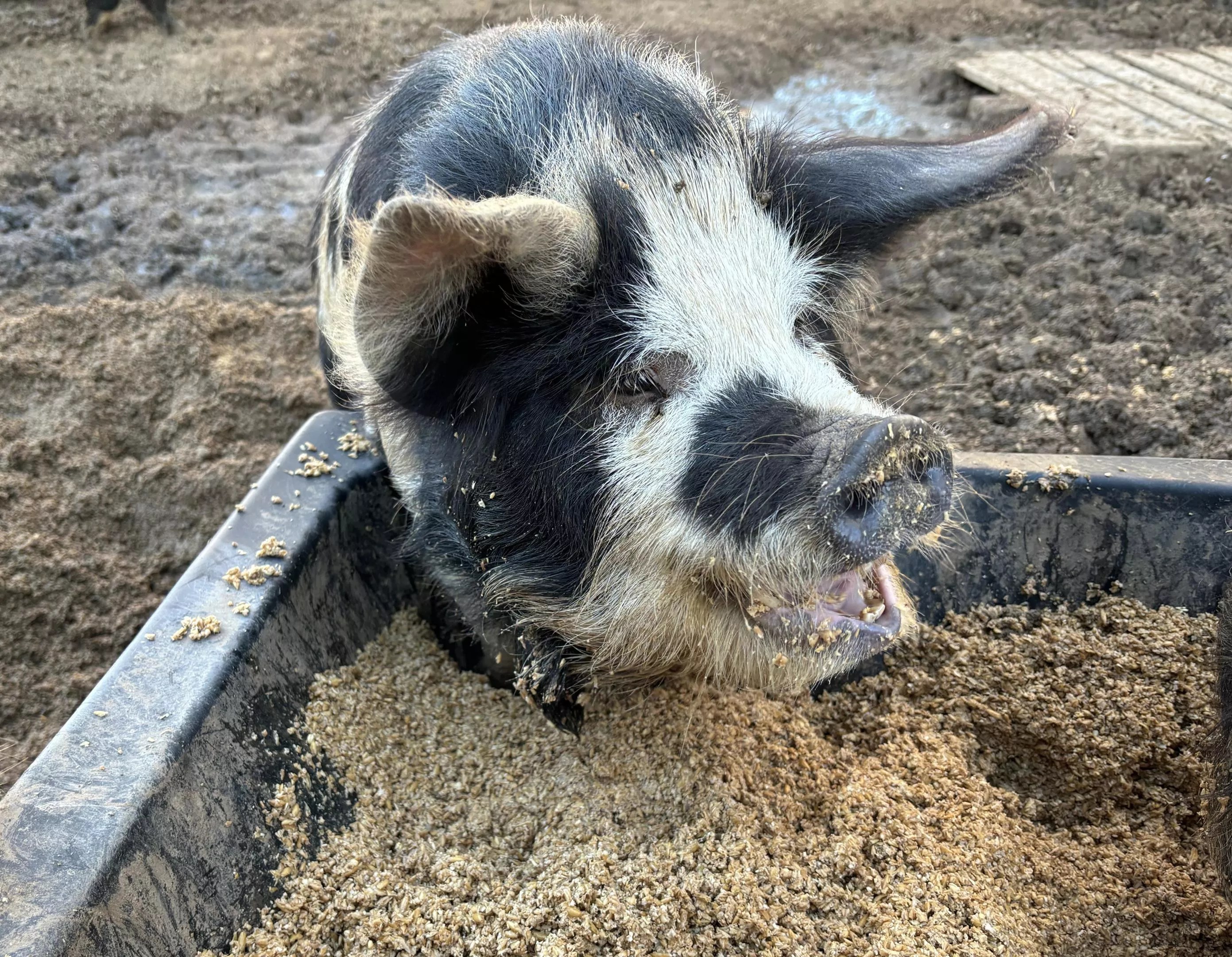
Moon River Beef

Audio By Carbonatix
To get beer from barley to the foamy quaff in your pint glass is a resource-intensive process. And in an arid state like Arizona, water usage is, understandably, in focus. Craft brewers have responded in a variety of ways, using recycled water to make beer, integrating less water-intensive grains into their brews or choosing to support organizations that keep Arizona water flowing.
But what about that barley? The grains that go into a beer can represent the majority of the waste – making up about 85% of the byproducts created by the brewing industry. To lessen their impact, many brewers are finding partners to take this “spent” grain, keeping it out of the landfill and in the hands of people who feed Arizona.

After a beer is made, local brewers are left with a few hundred to a few thousand pounds of spent grain. Despite the moniker, the cereal still maintains its nutrition, and brewers such as Goldwater share theirs with local ranchers.
Goldwater Brewing Co.
Where grain fits in the brewing process
At its most basic, beer brewing is a large-scale version of barley tea-making. Goldwater Brewing Co. brewmaster and co-owner Chad McClelland breaks down the process.
He gets pallets of grain delivered to the brewery every week to brew beer; each batch takes about 500 to 1,000 pounds of grain. That grain is added to hot water. The steeped liquid that’s subsequently drained off is called wort.
“If you want to think of a big pot of oatmeal, that’s kind of what it looks like,” McClelland says. “Sugar comes out of the grain, and we use that sugar in our beer. Beer is basically wort that ferments, and wort is this grain sugar that comes out of that grain. Once that all liquid is through the system, we’re left with not 500 to 1,000 pounds of grain; now it’s wet, so we’re left with a couple thousand pounds.”
At this point, McClelland, like other brewers, is presented with a choice.
“We can either throw that in the dump, or we call farmers,” he says, noting that offering up spent grain is something he’s done “since batch number one.”

Lisa Khan owns Moon River Beef. Her grain-finished cattle love the spent grain. “It’s like ice cream — but it’s healthy,” she says.
Moon River Beef
‘It’s like ice cream’
Brewery leaders say that spent grain is often something farmers and ranchers seek out from breweries because the cereal maintains its nutritional value. Brewers’ grain is high in fiber and protein, as well as antioxidants and vitamins B and C, says Lisa Khan, who owns Moon River Beef, a pasture-raised cattle ranch in Perkinsville that she and her family have run since 2018.
“I’ll tell you, (the cattle) love it. It’s like ice cream – but it’s healthy,” says Khan, who gets a small dumpster’s worth of spent grain from SanTan Brewing Co. each week.
The grain is a supplemental part of the diet of the grain-finished cows at Moon River Beef. Khan says it’s worth the time and gas to send a driver about three hours south to SanTan’s Chandler brewhouse to pick up the feed. Not only does it provide a benefit for the cattle, but it’s also created a stronger partnership with SanTan that’s led to a Moon River Beef burger on the brewpub’s menu.
“We trade them ground beef back for their spent grain,” Khan explains. “They can say, ‘Hey, guys, you drink our beer, and this beef was fed with the grains that made the beer.’ That’s pretty cool.”
She says that in addition to imparting important nutrients to the animal, the grain can impact the taste of the meat.
“It definitely gives it a sweeter flavor,” Khan says.
To illustrate that, SanTan and Moon River Beef partner with the small-batch seasoning company Timbo’s Spice on a twice-annual dinner to showcase beef, beer and spirits – and the journey from grain to farm to table. The next four-course meal, which will feature a beef stew, meatloaf slider, brisket pot pie, chicken-fried steak and additional beef cuts for purchase, is set for March 21.

Moon River Beef and SanTan Brewing Co. partner on a seasonal dinner to showcase beef, beers and spirits — and the journey from grain to farm to table.
Moon River Beef
Repurposing grain is a ‘no-brainer’
Jamie Hoffman, SanTan’s managing partner, describes relationships with ranchers such as Moon River Beef as a “no-brainer.”
“One thing that me and our founder have in common is that we hate waste, regardless of what it is,” he says. “It’s just ingrained.”
Using spent grain for animal feed isn’t the only way to get rid of these leftovers. Some brewers provide it to farmers for compost; others find ways to repurpose it themselves – like O.H.S.O. Brewery’s spent grain dog treats.
For Arizona Wilderness Brewing Co., sustainability and support for local producers are two key values upon which they’ve built their business. For the past two years, the Wilderness team has shared spent grain with Heartquist Hollow Farm. In Arizona Wilderness’ 2023 impact report, the brewer estimated that it sent 210,500 pounds of spent grain to local farms.
Scott and Christie Heartquist started their farm in Gilbert as a homestead and have since expanded, purchasing the former Double Check Ranch outside of Dudleyville. They now raise lamb, cattle and pigs, which are all beneficiaries of the brewer’s grain.
Brad Miles, the head of production for Arizona Wilderness, calls partnerships like this “a win-win for everybody” that helps the brewer “close the loop.”
“It’s an agricultural product; it takes water, land and resources to grow barley,” he says. “To just throw it away, it’s a complete waste when we could complete the food circle and give this grain to a farmer who is going to use it.”

Spent grain from Arizona Wilderness Brewing Co. is part of the daily diet of pigs at Heartquist Hollow Farm. The brewer partners with the farm in other ways, too, using its pickles for its seasonal Dill Pickle Sour.
Heartquist Hollow Farm
The Heartquists say their pigs don’t go quite as wild as the cattle for the grain because it’s part of their everyday feed, but they add that it plays an important role in the animals’ nutrition.
“What the pig needs stays with the grain; what the brewers need for alcohol stays with the vat,” Scott says. “Ultimately, (the pigs) do really well on it.”
Scott says the partnership with Arizona Wilderness has been a natural one because of their shared commitment to doing the right thing, not the easy thing, adding, “it’s pretty easy to take a barrel and dump it in the garbage” instead of holding it for farmers like them to pick up.
Miles says partnerships such as this are “second nature” for the brewer.
“(The grain) still has so much potential to give; it’s still good feed,” he says. “If we can give this to a farmer who can use it, why wouldn’t we?”
Goldwater’s McClelland echoed Miles’ sentiment.
“It just makes sense, it’s like recycling,” McClelland says. “It’s not only for the benefit of us; it’s for the benefit of others.”